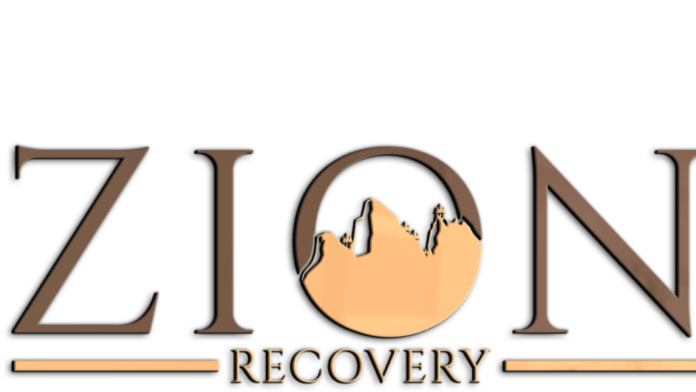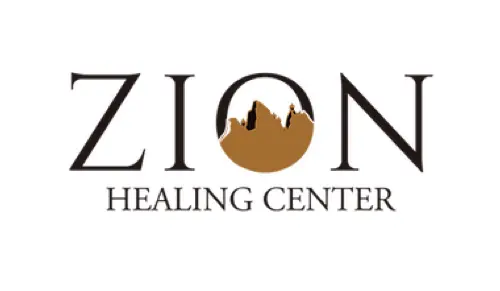About Zion Healing Center
Zion Healing Center provides substance abuse and mental health treatment for adults. You’ll find ’em located out in Murray, Utah. They offer intensive outpatient (IOP) services. This track gives you more flexibility if you’re able to live at home and continue working or attending school without needing 24/7 supervision.
Their holistic methods address every aspect of healing. You’ll collaborate with the team to decide which approaches work best for your needs. This can include anger management, learning new life skills, and figuring out how to balance your checkbook. The point is that you’ll reduce stress and won’t need to go back to drugs to feel better.
They believe that using a traditional approach with newer methods can help you overcome addiction and maintain long-term sobriety. They feature transcranial magnetic stimulation (TMS) therapy with neurofeedback brain mapping. This service provides an innovative means of healing that’s not offered at all recovery centers.
TMS therapy can also help with mental health conditions like depression that often come with addiction. It restores functionality by targeting the affected areas of the brain. It uses brain stimulation for areas that have become underactive.
Neurofeedback Brain Mapping identifies irregularities and gives therapists potential causes of your addiction. These methods can help them design a customized treatment plan for your needs.
In addition, there are also traditional counseling approaches. You’ll attend group and individual counseling sessions. They’ll help you identify your triggers and find healthier ways to cope with stress without resorting to drugs. Your support group is made up of your peers, and they can be with you through hard times, even after you graduate.
Rehab Score
Gallery
Location
Accepted Insurance
Other Forms of Payment
Medicare is a federal program that provides health insurance for those 65 and older. It also serves people under 65 with chronic and disabling health challenges. To use Medicare for addiction treatment you need to find a program that accepts Medicare and is in network with your plan. Out of pocket costs and preauthorization requirements vary, so always check with your provider.
Private insurance refers to any kind of healthcare coverage that isn't from the state or federal government. This includes individual and family plans offered by an employer or purchased from the Insurance Marketplace. Every plan will have different requirements and out of pocket costs so be sure to get the full details before you start treatment.
Private insurance refers to any kind of healthcare coverage that isn't from the state or federal government. This includes individual and family plans offered by an employer or purchased from the Insurance Marketplace. Every plan will have different requirements and out of pocket costs so be sure to get the full details before you start treatment.
Military members, veterans, and eligible dependents have access to specific insurance programs that help them get the care they need. TRICARE and VA insurance can help you access low cost or no cost addiction and mental health treatment. Programs that accept military insurance often have targeted treatment focused on the unique challenges military members, veterans, and their families face.
Addiction Treatments
Levels of Care
Treatments
Mental health rehabs focus on helping individuals recover from mental illnesses like bipolar disorder, clinical depression, anxiety disorders, schizophrenia, and more. Mental health professionals at these facilities are trained to understand and treat mental health issues, both in individual and group settings.
Programs

Clinical Services
Creativity is inherently healing, and can help those in recovery express thoughts or feelings they might not otherwise be able to. Creative arts therapy can include music, poetry/writing, painting, sculpting, dance, theater, sandplay, and more. Unlike traditional art, the final product matters far less than the experience of creation and expression itself.
Equine therapy, aka equine-assisted therapy (EAT), is a form of experiential therapy that involves interactions and activities with horses. It does not necessarily involve riding horses, but all activities related to horses, such as feeding, grooming, haltering and leading them. A mental health professional frequently oversees the activities (often in conjunction with a horse professional), and helps patients process their thoughts, feelings, and behavior patterns during and/or after the interaction.
Experiential therapy is a form of therapy in which clients are encouraged to surface and work through subconscious issues by engaging in real-time experiences. Experiential therapy departs from traditional talk therapy by involving the body, and having clients engage in activities, movements, and physical and emotional expression. This can involve role-play or using props (which can include other people). Experiential therapy can help people process trauma, memories, and emotion quickly, deeply, and in a lasting fashion, leading to substantial and impactful healing.
Group therapy is any therapeutic work that happens in a group (not one-on-one). There are a number of different group therapy modalities, including support groups, experiential therapy, psycho-education, and more. Group therapy involves treatment as well as processing interaction between group members.
In individual therapy, a patient meets one-on-one with a trained psychologist or counselor. Therapy is a pivotal part of effective substance abuse treatment, as it often covers root causes of addiction, including challenges faced by the patient in their social, family, and work/school life.
Accreditations

The Substance Abuse and Mental Health Services Administration (SAMHSA) is a branch of the U.S. Department of Health and Human Services. Established in 1992 by congress, SAMHSA's mission is to reduce the impact of substance abuse and mental illness on American's communities.
SAMHSA Listed: Yes
Contact Information
310 East 4500 South
Suite 650
Murray, UT 84107








